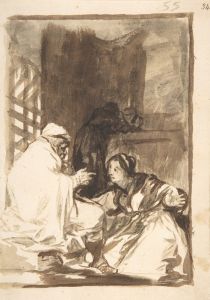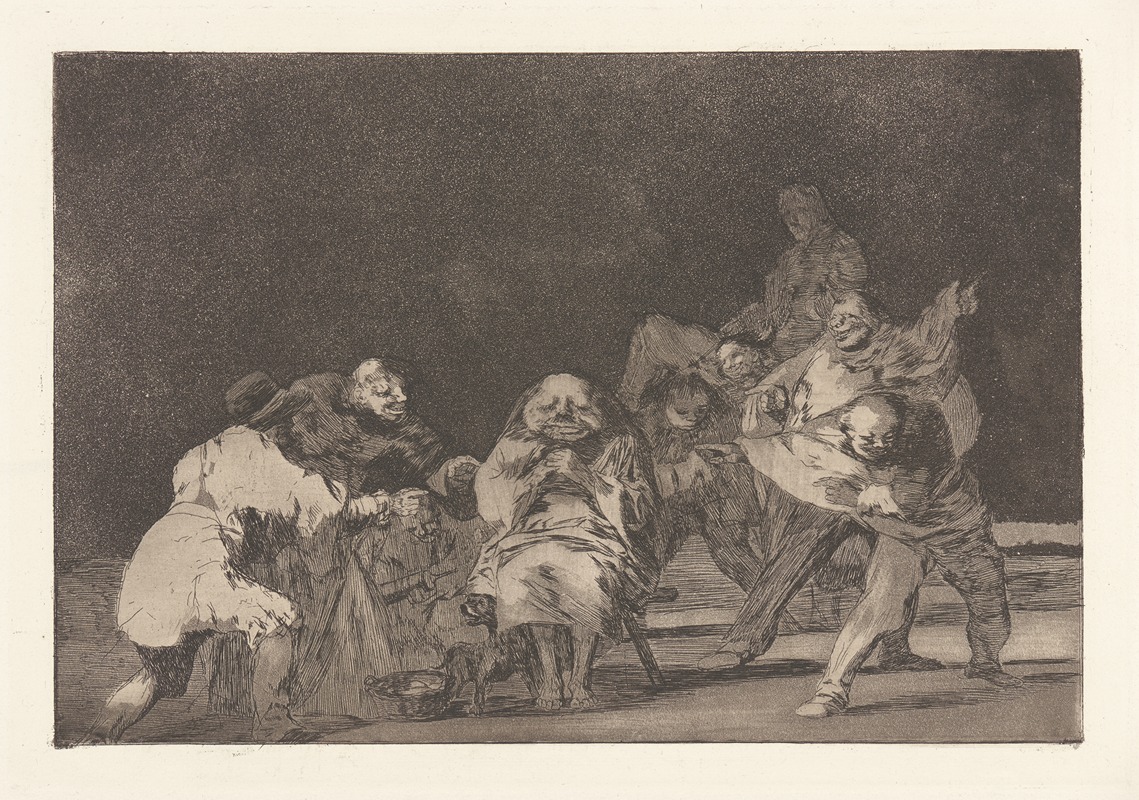
He Who Does Not Like Thee Will Defame Thee in Jest [Loyalty]
A hand-painted replica of Francisco de Goya’s masterpiece He Who Does Not Like Thee Will Defame Thee in Jest [Loyalty], meticulously crafted by professional artists to capture the true essence of the original. Each piece is created with museum-quality canvas and rare mineral pigments, carefully painted by experienced artists with delicate brushstrokes and rich, layered colors to perfectly recreate the texture of the original artwork. Unlike machine-printed reproductions, this hand-painted version brings the painting to life, infused with the artist’s emotions and skill in every stroke. Whether for personal collection or home decoration, it instantly elevates the artistic atmosphere of any space.
Francisco de Goya's painting He Who Does Not Like Thee Will Defame Thee in Jest [Loyalty] is part of his series of small-scale works known as the Black Paintings. These paintings were created between 1819 and 1823 during a period of personal and political turmoil in Goya's life. The series was originally painted directly onto the walls of Goya's home, the Quinta del Sordo (House of the Deaf Man), near Madrid. The works were later transferred to canvas and are now housed in the Museo del Prado in Madrid, Spain.
The painting's title, He Who Does Not Like Thee Will Defame Thee in Jest [Loyalty], is derived from interpretations of the themes present in the Black Paintings. However, it is important to note that Goya did not title these works himself, and the titles were assigned posthumously based on their content and presumed meaning. The painting reflects the dark, introspective, and often ambiguous nature of the Black Paintings, which are characterized by their somber tones, haunting imagery, and themes of human folly, suffering, and existential despair.
The exact subject matter and meaning of this particular painting remain uncertain, as Goya left no written explanation of his intentions for the Black Paintings. Scholars have suggested that the works in this series may reflect Goya's disillusionment with society, his personal struggles with illness and aging, and the broader political and social upheavals of early 19th-century Spain. However, without direct evidence from Goya himself, these interpretations remain speculative.
The Black Paintings as a whole are considered a significant departure from Goya's earlier works, which included court portraits, religious commissions, and satirical prints. They represent a deeply personal and experimental phase in his artistic career, marked by a shift toward darker themes and a more expressive, almost proto-modernist style. The series is widely regarded as a precursor to later movements such as Expressionism and Surrealism.
Due to the lack of specific documentation or contemporary accounts, little is known about the individual circumstances surrounding the creation of He Who Does Not Like Thee Will Defame Thee in Jest [Loyalty]. As with the other Black Paintings, its meaning and significance remain open to interpretation, inviting viewers to engage with its enigmatic imagery on a personal and emotional level.






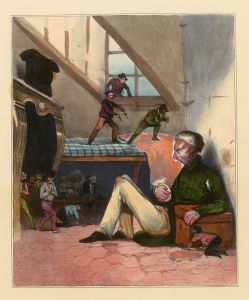



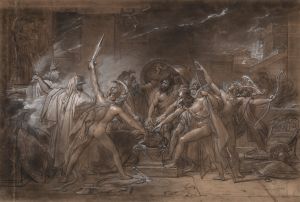
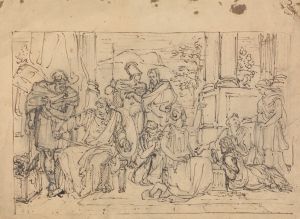
![After Vice Comes Fornication [Simpleton]](/imgs/264583/s/francisco-de-goya-after-vice-comes-fornication-simpleton-880a5769.jpg)
![It Is Amazing-And We Were Made by God [Furious Folly]](/imgs/264618/s/francisco-de-goya-it-is-amazingand-we-were-made-by-god-furious-folly-a15fa352.jpg)
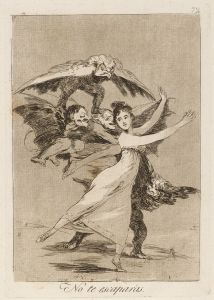
![The Claws of a Cat and the Dress of a Devotee-Similar to Vice Is Often Clothed in Virtue’s Habit [General Folly]](/imgs/264662/s/francisco-de-goya-the-claws-of-a-cat-and-the-dress-of-a-devoteesimilar-to-vice-is-often-clothed-in-virtues-habit-general-folly-3d0e1eb5.jpg)


